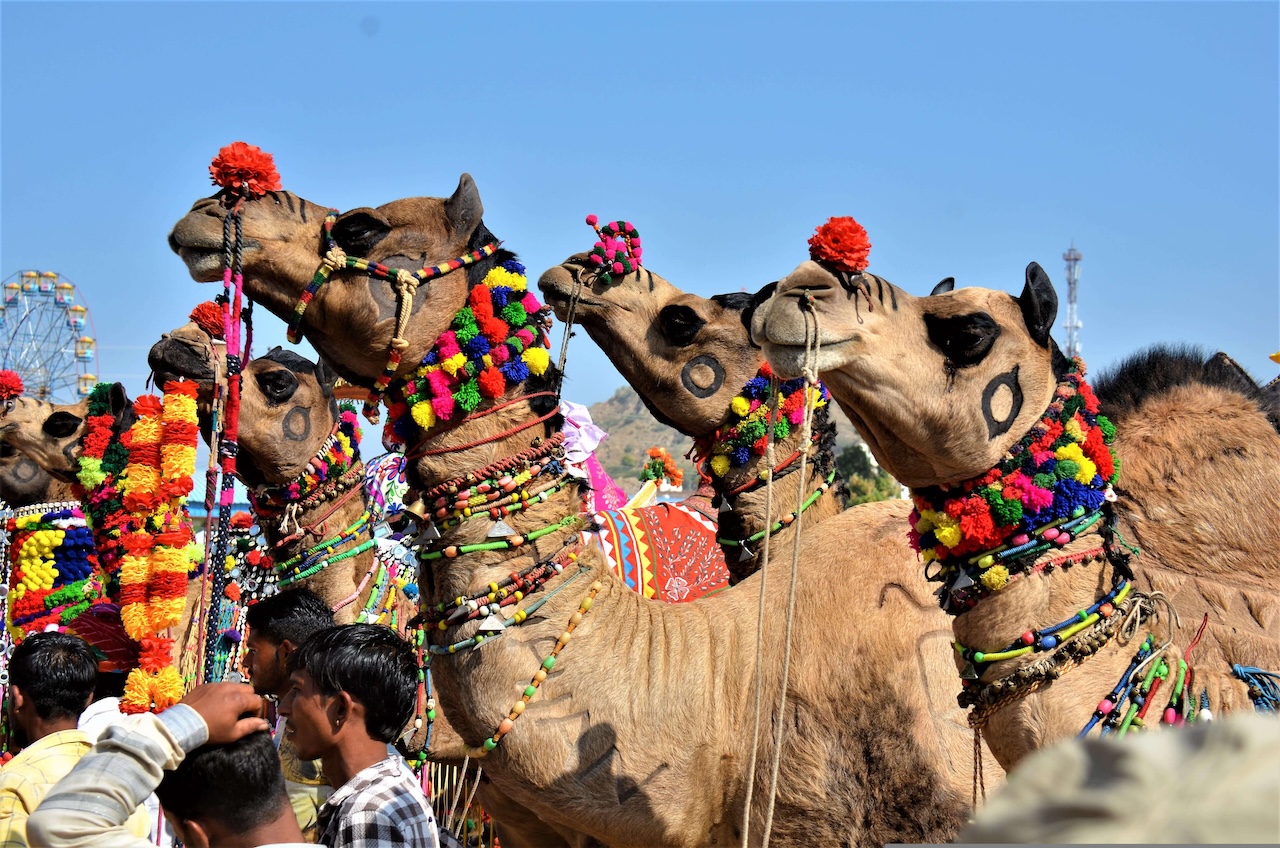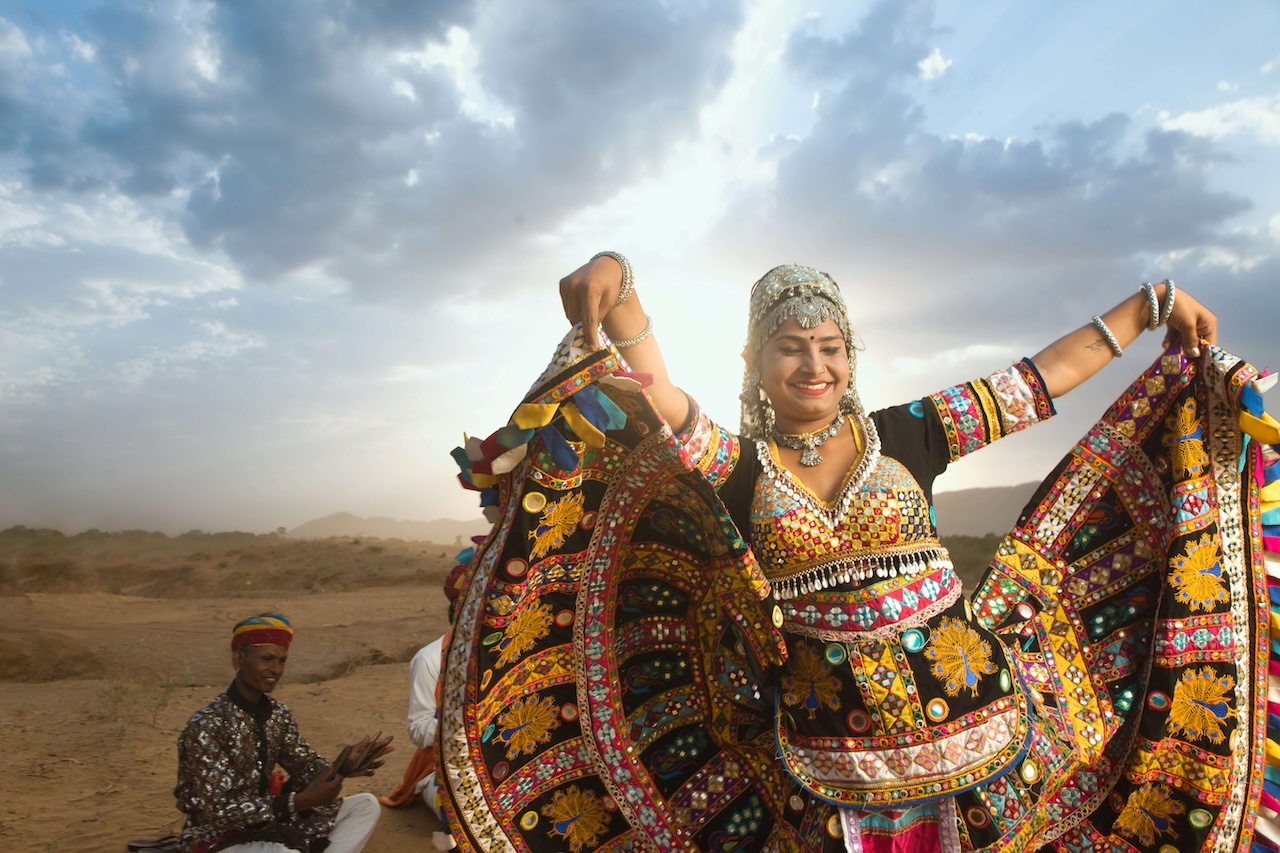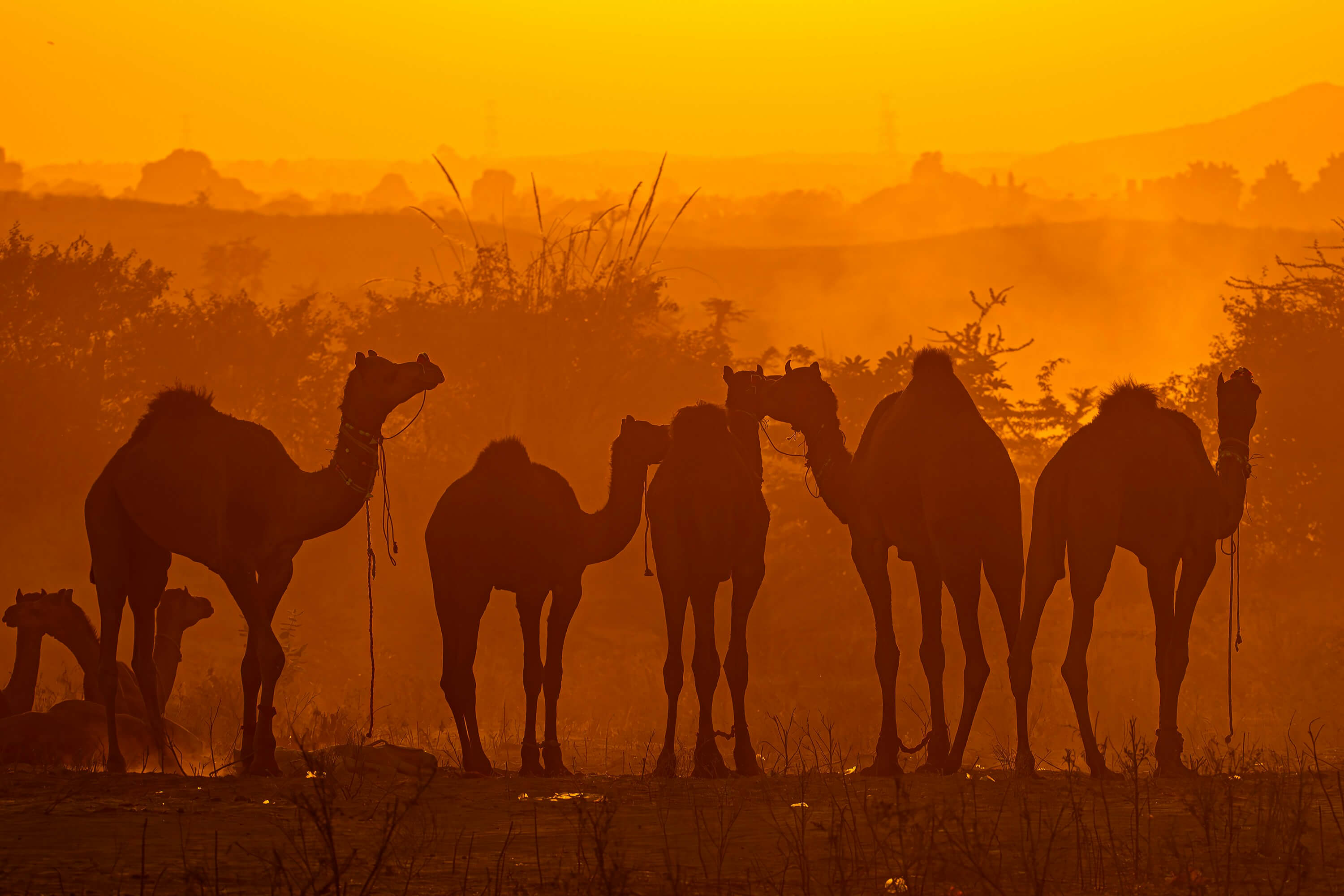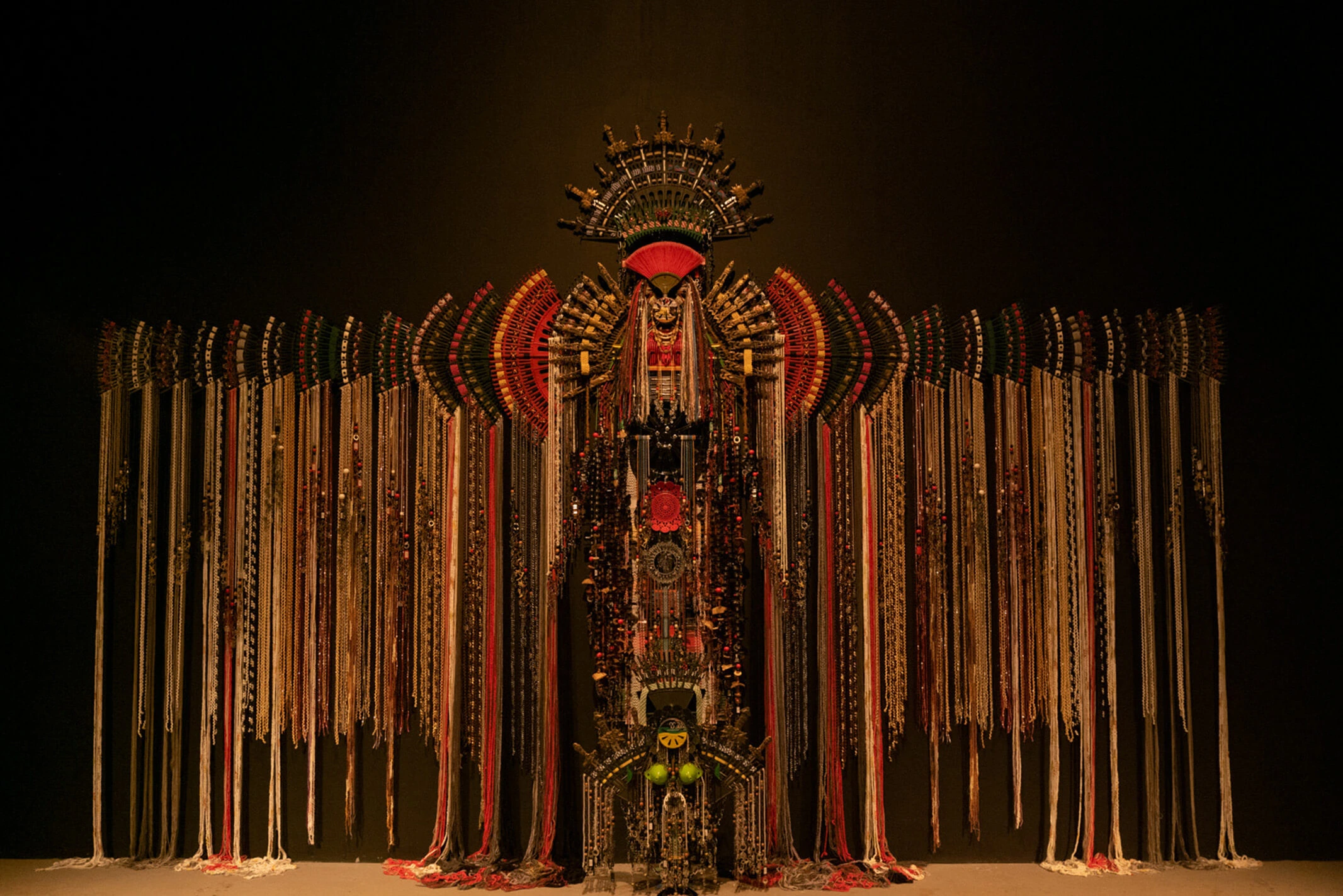A Gathering Older than Memory
There are places in the world where time seems to be in a loop, where ancient rituals and modern wanderlust intertwine in a heady embrace. The Pushkar Cattle Fair, held annually in the small Rajasthani town of Pushkar, is one such place. Imagine a desert transformed into a carnival of colour, where camels are dressed in finery grander than a fashion runway, and holy chants create ripples on the waters of a sacred lake.
For the seasoned traveller, this is not merely an event — it is theatre under the Indian sun.
Pushkar itself is one of the oldest towns in India, and legend says it was created when Brahma, the Hindu god of creation, dropped a lotus flower upon the desert sands. The fair — locally called Pushkar Mela — was originally a cattle and camel trade gathering. Over time, it blossomed into one of the largest livestock fairs in the world, now drawing tens of thousands of visitors, pilgrims, traders, and wide-eyed explorers alike.
Where Camels Become Supermodels

If you've ever wondered what it might look like if camels had their own fashion week, Pushkar is your answer. These desert ships are groomed, adorned with mirror-studded fabrics, tassels, and elaborate jewellery, their fur often trimmed into intricate patterns that may even rival haute couture. Competitions range from "Best Decorated Camel" to "Longest Moustache," and while the latter is for the menfolk, it's the camels who inevitably steal the show.
A Feast for the Senses
Pushkar during the fair is a place where senses are never at rest. The air fills with the sound of devotional music, folk performances, and the hypnotic beat of drums. Stalls overflow with silver jewellery, embroidered textiles, and hand-crafted treasures. Food vendors serve up fragrant curries, multi-coloured sweets dripping with syrup, and cups of steaming masala chai.
At dawn, hot air balloons rise above the desert, offering a bird's-eye view of this kaleidoscopic wonderland—a vision that is whimsical and grounding in equal measures.
Sacred Waters and Spiritual Whispers

Beyond the festival's exuberance lies Pushkar's sacred soul. The town is built around a holy lake said to have sprung from the petals of Brahma's lotus. During the fair, pilgrims bathe in its waters, believing the ritual absolves a lifetime of sins. Temples ring their bells as the desert sky turns lavender, and one can't help but feel suspended between the earthly and the divine.
Why You Should Go
The Pushkar Fair is not simply an event—it is an immersion. For the seasoned explorer, it offers that rare fusion of cultural authenticity and whimsical fantasy. It's a place where you can sip masala chai while bargaining for handwoven textiles, join locals in a joyous desert dance, or quietly witness centuries-old rituals of devotion.
And perhaps most importantly, it's a reminder that travel, at its best, is about surrendering to the unexpected—to the sight of a camel in full regalia, to the sound of bells carried on the desert breeze, to the sheer exuberance of humanity gathering in celebration.
Pushkar is not just a fair—it's an encounter with India's extravagant heart.

Our Explorer's Tip
For comfort amid the desert chaos, opt for one of Pushkar's luxury tented camps—where after an adventurous day in the sand, you return to fine linens, candlelit dinners, and a quietude that is a privilege.
Planning Your Visit: Pushkar Fair Dates and Travel Tips
The Pushkar Camel Fair is not just an event—it's a carefully orchestrated cultural phenomenon that follows the rhythms of the Hindu lunar calendar. Understanding the timing and logistics is crucial for experiencing this desert spectacle at its finest.
When to Visit: Dates and Significance
The fair takes place from October 30th to November 5th, 2025, coinciding with the Hindu lunar month of Kartik. The festival culminates on Kartik Purnima (full moon), considered highly auspicious for rituals and bathing in Pushkar Lake. This timing ensures you witness both the commercial frenzy of camel trading and the spiritual devotion of thousands of pilgrims.
Early arrivals begin days before the official start, with camel traders and herders setting up camp. Peak trading activity occurs in the first few days, making this the ideal time for those seeking the authentic commercial aspect of the fair.
Major Attractions and Activities
The fair transforms the desert into a living theatre with over 30,000 camels participating in trading and competitions. Witness camel races, beauty pageants, dance performances, and decoration contests where these desert ships are adorned with mirror-studded fabrics and elaborate jewellery.
Cultural competitions include the longest moustache contest, turban tying competitions, bridal competitions, and rural sports like kabaddi. Folk performances and religious rituals such as the Maha Aarti (fire ceremony) at Pushkar Lake create an atmosphere of spiritual devotion.
Staying in Style: Luxury Tented Camps and Accommodation
For those seeking luxury travel India experiences, Pushkar offers full-service luxury tents that provide a serene oasis amid the desert chaos. These tented camps feature fine linens, candlelit dinners, and the quietude that is a privilege in such a vibrant setting. Boutique and heritage hotels in the town center offer alternative luxury accommodations with easy access to the fairgrounds.
Travel and Logistics
The nearest airport is Jaipur International Airport, 146 km away, with regular flights from major Indian cities. Ajmer Junction railway station, just 11 km from Pushkar, offers regular train connections from Delhi, Mumbai, and Jaipur. For the ultimate cultural immersion travel experience, consider booking transport and accommodation months in advance due to high demand.
Essential Tips for Visitors
Clothing: Wear modest, comfortable attire (avoid shorts/tank tops) due to dust and cultural norms. The desert environment and spiritual significance of the site require respectful dressing.
Cash: ATMs may run dry during peak festival days; carry sufficient Indian rupees for small purchases, handicrafts shopping, and local experiences.
Guides: An accompanying tour leader or local guide enhances the experience significantly, helping navigate the fair and understand the deep-rooted traditions and cultural significance.
Animal Welfare: Be mindful of ethical concerns around animal treatment during competitions. Choose experiences that respect the welfare of the camels and other animals.
Pro Tip: Book transport and accommodation months in advance due to high demand. This is especially crucial for luxury tented camps and boutique hotels.
Beyond the Fair: Sacred Sites of Pushkar
While the fair is the main attraction, Pushkar's spiritual heritage deserves exploration. The Brahma Temple, one of the few dedicated to the creator god, and the sacred Pushkar Lake offer moments of quiet reflection. These pilgrimage sites India represent the spiritual journey India that complements the cultural spectacle of the fair.


